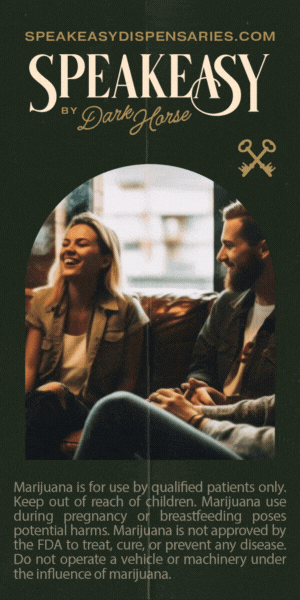Breaking The Chain
Medical Marijuana Fights Opioid Addiction.
By Jessica Maxwell

In recent years, medical marijuana has emerged as an unlikely ally in the fight against opioid addiction, with a growing body of scientific research highlighting its benefits. As the opioid crisis continues to claim lives and strain health care systems in the United States, alternative treatments like medical marijuana are gaining attention for their ability to alleviate symptoms and reduce reliance on opioids.
The origin of the opioid epidemic is often attributed to Purdue Pharma and the promotion of the drug OxyContin. Purdue falsely marketed OxyContin to primary care physicians as a safe and virtually addiction-free pain management drug. During the “prescribing boom” of the 1990s, doctors in the U.S. began overprescribing OxyContin as well as other pharmaceutical opioids such as hydrocodone, morphine and codeine to treat acute pain. What followed was a public health catastrophe that remains ongoing. There was an onslaught of addiction-related deaths that occurred as a direct result of overprescription, but the effects became even more widespread. To meet the demand of those newly addicted to opioids, the heroin market expanded, which brought forth an even larger wave of addiction-related deaths. Finally, in the most recent years, the rise of synthetic opioids such as fentanyl has been catastrophically impacting communities of every demographic across the United States. Based on the Substance Abuse and Mental Health Services Administration’s most recent annual survey, an estimated 6.1 million people 12 and older have or had opioid use disorder (OUD). (1) This is an epidemic, and to begin the healing process, all angles should be explored.
Medical marijuana could be a key player in the healing process for people struggling with addiction. Despite the information that cannabis could be beneficial both for pain management as well as combating opioid addiction, many may still feel unsure. It’s hard not to point out the irony. Stigmas surrounding cannabis have persisted for decades. Marijuana has historically been categorized as unsafe. Commonly referred to as the “gateway drug,” it has been inferred for years that marijuana has the potential to lead to a lifetime of addiction. Yet, the irony lies in that it is the very drugs prescribed by your family doctor that can so easily plant the seeds of addiction — not the other way around. As more states come around to legalizing marijuana for medicinal purposes, research on the benefits of marijuana has continued to expand. In a study published by The National Library of Medicine, it was found that cannabinoids, the active compounds in marijuana, interact with the brain’s endocannabinoid system in a way that can stimulate the reward system in the brain and potentially curb withdrawal symptoms.(2) This interaction also helps to modulate pain and mood, providing relief without the risk of addiction that comes with opioids. It is noted, however, that further clinical research is needed to assess the long-term effects and potential risks associated with medical marijuana use. Despite promising research, the question of patient access is raised. A common problem for patients seeking certification for a medical marijuana card by their doctor is that their condition is not listed as one of the “qualifying medical conditions.” Only a handful of states have added opioid use disorder as a qualifying condition but have seen positive results. A comprehensive review published in JAMA Internal Medicine analyzed data from states with legalized medical marijuana and found a correlation between the availability of medical cannabis and a reduction in opioid-related deaths. The researchers concluded that states with medical marijuana laws had a 25% lower annual opioid overdose mortality rate compared to states without such laws. As more states consider adding opioid use disorder to the list of qualifying conditions for medical marijuana, policymakers are urged to create comprehensive frameworks that ensure patient safety and access. (3) Collaboration between researchers, health care providers, and legislators is essential to developing guidelines that maximize the therapeutic potential of medical marijuana while minimizing risks.
Arkansas anesthesiologist Dr. Brian Nichol has been working with his patients on managing pain with cannabis for several years. Pain management and opioid addiction can go hand in hand if not prescribed appropriately, or if the drug is misused by the prescribed. When he noticed that patients who were using “black-market” cannabis showed massive improvements in their overall quality of life, he became intrigued. He wanted to help patients explore options beyond pharmaceuticals to manage pain. Even if a patient is not an “opioid addict,” but is simply taking opioids to manage pain, the goal might be simply to stop feeling reliant on pharmaceuticals for other reasons. Side effects from opioids such as drowsiness and nausea that some patients experience can be debilitating and inconducive to overall quality of life. For Nichol, the goal is always to improve the quality of life for his patients, and he believes that cannabis can do that for “90% of people.” He humbly boasts that the patients who return to him for their annual follow-up for cannabis almost always report an improved quality of life. He notes that some patients who were previously reliant on opioids were able to begin tapering off and instead substituted cannabis for pain relief. When asked about what his hopes for cannabis in medicine are for the future, he responded that he “hopes for cannabis to be a first-line treatment for patients. Right now, cannabis is often viewed as a last resort rather than a first option to explore.”
As attitudes toward medical marijuana shift and are supported by a growing body of scientific research, a promising avenue for reducing opioid dependence and managing chronic pain opens up. While challenges remain, the potential benefits of incorporating medical marijuana into addiction treatment protocols could mark a significant step forward in addressing the opioid crisis and lead to a healthier population.
1. Wiese B, Wilson-Poe AR. Emerging Evidence for Cannabis’ Role in Opioid Use Disorder. Cannabis Cannabinoid Res. 2018 Sep 1;3(1):179-189. doi: 10.1089/can.2018.0022. PMID: 30221197; PMCID: PMC6135562. 2. Bachhuber MA, Saloner B, Cunningham CO, Barry CL. Medical Cannabis Laws and Opioid Analgesic Overdose Mortality in the United States, 1999-2010. JAMA Intern Med. 2014;174(10):1668–1673. doi:10.1001/jamainternmed.2014.4005



